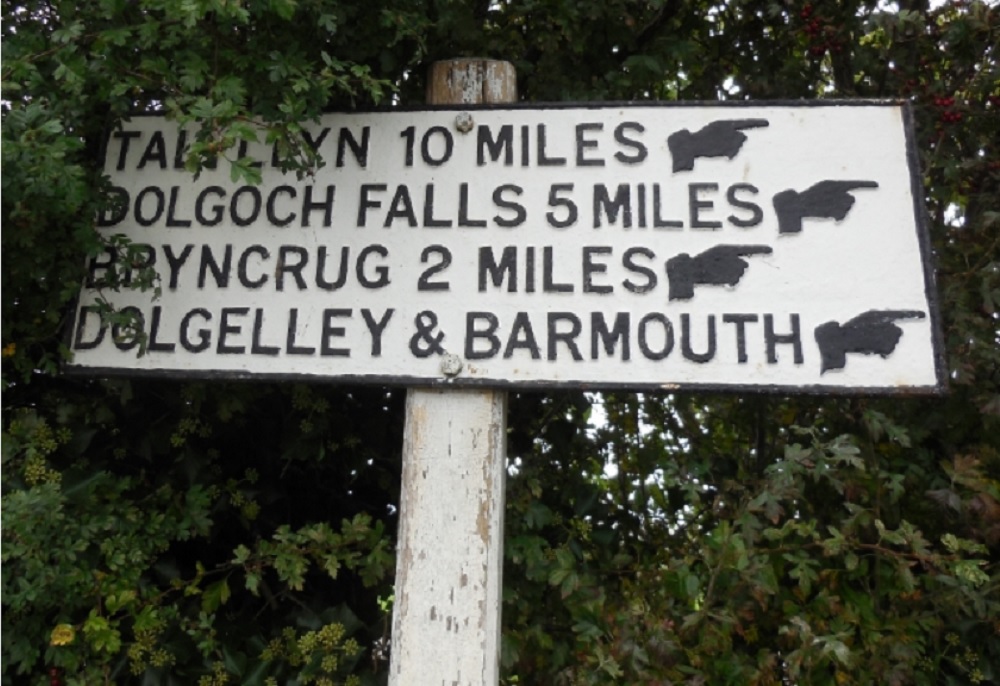We need to grow a spine and insist on keeping our Welsh place names

Rhodri Anderson
I went on holiday to the north of Wales this summer, to walk along the Welsh Coast Path. It was absolutely stunning. Penllŷn might just be the most beautiful stretches of coast in the whole of the UK.
As you round the corner, coming off the peninsula and through Porthmadog, Penrhyndeudraeth, Harlech and Dyffryn Ardudwy, the names – pronounced correctly – are as fascinating as the coast is beautiful.
They roll off, and linger on, the tongue all at once.
But when walking in Gwynedd, two names stuck out like a store thumb, Barmouth and Fairbourne. What are they doing in Gwynedd? I hear you ask. I’m glad you asked, I wondered too, so I looked into it.
Fairbourne is legitimately what the place is called. Strange, but fair.
Not so Barmouth. Why is the mouth of the Mawddach estuary called Barmouth? Just in case of doubt, Bar is not an English translation of Mawddach.
The Welsh name was once contentious because it has various recognised Welsh versions, of which one is Abermawdd.
The name Barmouth was essentially misheard. Aber as Bar, mawdd as mouth. It’s not a translation – it’s just incorrect.
Presumably at some point – probably because very important railway people with no connection to the area put up a big sign – people just doffed their caps and stopped correcting the mistake.
Angry
It’s a lot like your name is Rhodri, you work in an office and someone new starts in the canteen.
‘What’s your name?’ they say.
‘Rhod’ you say.
‘Ron?’ They reply.
‘Yeah, that’s right’ you say, eyeing up the cake they’re about to serve you up.
Five years later your wife comes to the Christmas party. Someone asks her.
‘Have you seen Ronald?’
‘Who?’
‘Ronald, your husband! Oh and how’s baby Gavin?’
Soon it becomes clear that everyone thinks your name is Ronald. Your wife, bemused at first, starts getting angry.
‘You’re not Ron, you’re Rhod. Our baby isn’t Gavin, he’s Gethin. Grow a spine and tell them!’
Wrong
People can, and do, pronounce place names however they want. I grew up in Penyrheol, which the locals call Penrawl. There’s little that can be done about that. But we wouldn’t let Penrawl become the official spelling on a sign.
Can you imagine the English saying: ‘You know, a lot of people are pronouncing Reading ‘Redding’, perhaps we should put both on the signs to make it easier for people.
‘They’re missing half the letters when they say Worcester, best put down Wooster, for the tourists. Frome is being said Froom.
‘The American tourists pronounce Norwich as Norridge…’
And so on, and so on and so on. ‘Hey, we’d better change the spelling of England to Inglund to so no one gets confused…’
This is not an argument against historical English place names in Wales. To lose those would be as bad as to lose the historical Welsh place names.
But the terrible thing is many place names in Wales are not translations, they’re mispronunciations. They’re wrong.
Goostrey in Powys is another example. Not a tray full of geese but rather an anglicisation of Gwystre.
We’ve already done away with some horrors, such as Dolgelley for Dolgellau. Presumably, the people there simply decided that they weren’t going to put up with it any more – and good on them.
Insult
You know the worst of all, don’t you? No, it’s not rendering Llyn Bochlwyd as Lake Australia, although that one it teeth-gnashingly bad.
In my opinion, it’s Wales. The word comes from the early English for a foreigner. Cymru comes from the old Cymraeg for countryman, or friend. Wales is not a translation, it’s an insult.
Do we really prefer these mutant versions of our place names to the correct versions? Let’s make a point of using the modern Abermaw, in the nation of Cymru.
Come on Ronald, grow a spine.
Support our Nation today
For the price of a cup of coffee a month you can help us create an independent, not-for-profit, national news service for the people of Wales, by the people of Wales.






